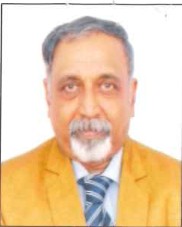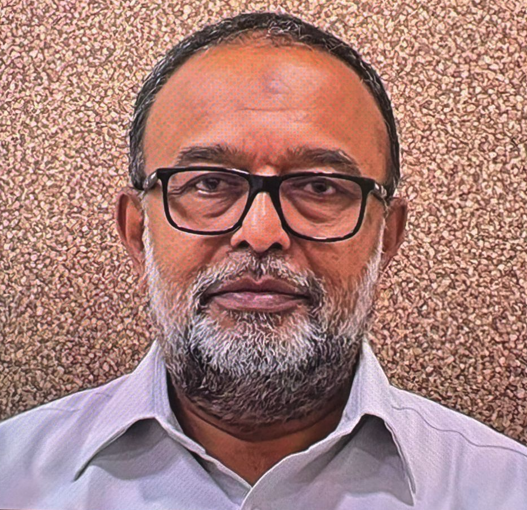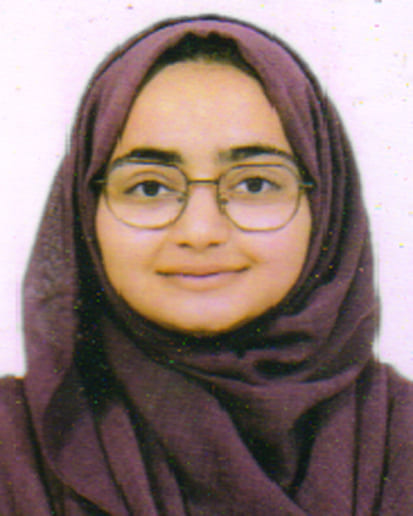Department of Livestock Products Technology: Economic and profitable livestock farming is possible when livestock raw products are not wasted and marketed as finished products. This department offers courses on technology of preparing and preserving many nutritive products from milk, meat, fish etc. Techniques of processing of bye products like wool, fur, hide and flaying etc. to make utility products is also included in the syllabi. Department is adequately equipped with facilities to impart practical training during the course of study.
The Department has following sanctioned strength of Faculty:
Professor - 1
Associate Professor – 1
Assistant Professors – 2
COURSES AND SYLLABI
| S.No. |
Name |
Designation |
Qualification |
Service Period at AVC |
Photo |
Biodata |
|
01
|
Dr. K. Dushyanthan
|
Professor
|
B.V.Sc & AH, M.V.Sc and PhD
|
16.04.2022 to till Continue
|
 |
Biodata |
|
02
|
Dr. Mohamed Nadeem Fairoze
|
Professor
|
B.V.Sc & AH, M.V.Sc
and PhD
|
05.09.2019 to till Continue
|
 |
Biodata |
|
03
|
Dr. Bedika Bora
|
Assistant Professor
|
B.V.Sc & AH, M.V.Sc and PhD
|
15.01.2025 to till Continue
|
 |
Biodata |
|
04
|
Dr. Aamena Malek
|
Assistant Professor
|
B.V.Sc & AH, M.V.Sc
|
02.12.2024 to till Continue
|
 |
Biodata |
THEORY
UNIT-1 (MILK AND MILK PRODUCTS TECHNOLOGY)
Retrospect and prospects of milk industry in India. Layout of milk processing plant and its management. Composition and nutritive value of milk and factors affecting composition of milk. Physico-chemical properties of milk. Microbiological deterioration of milk and milk products. Collection, chilling, standardization, pasteurization, UHT treatment, homogenization, bactofugation. Dried, dehydrated and fermented milk. Introduction to functional milk products. Preparation of cream, butter, paneer or channa, ghee, khoa, lassi, dahi, ice-cream, mozzarella cheese and dairy byproducts. Common defects of milk products and their remedial measures. Packaging, transportation, storage and distribution of milk and milk products. Good manufacturing practices and implementation of HACCP in milk plant. Organic milk products. Food safety standards for milk and milk products. Cleaning and sanitation in milk plant. Dairy effluent management.
UNIT-2 (WOOL SCIENCE)
Introduction to wool, fur, pelt and specialty fibers with respect to processing industry. Glossary of terms of wool processing. Basic structure and development of wool follicle. Post shearing operations of wool, classification and grading of wool, physical and chemical properties of wool. Impurity of wool, factors influencing the quality of wool. Brief outline of processing of wool.
UNIT-3 (ABATTOIR PRACTICES AND ANIMAL BYPRODUCTS TECHNOLOGY)
Layout and management of rural, urban and modern abattoirs. HACCP concepts in abattoir management. FSSA standards on organization and layout of abattoirs. Animal welfare and pre-slaughter care, handling and transport of meat animals including poultry. Procedures of Ante-mortem and post mortem examination of meat animals. Slaughtering and dressing of meat animals and birds. Emergency and casualty slaughter. Evaluation, grading and fabrication of dressed carcasses including poultry. Abattoir byproducts; rendering, meat, bone, glue, gelatin, fat and byproducts of pharmaceutical value. Skin and hides; methods of flaying, defects, preservation and tanning. Treatment of condemned meat and carcasses. Management of effluent emanating from abattoir.
UNIT-4 (MEAT SCIENCE)
Prospect of meat industry in India. Structure and composition of muscle (including poultry muscle). Conversion of muscle to meat. Nutritive value of meat. Fraudulent substitution of meat. Preservation of meat and poultry; drying, salting, curing, smoking, chilling, freezing, canning, irradiation and chemicals. Ageing of meat. Modern processing technologies of meat and meat products. Packaging of meat and meat products. Formulation and development of meat; kabab, sausages, meat balls or patties, tandoori chicken, soup, pickles. Fermentation of meat products. Physico-chemical and microbiological quality of meat and their products. Basics of sensory evaluation of meat products. Nutritive value, preservation, packaging of egg and egg products. Laws governing national orinternational trade in meat and meat products. Organic and genetically modified meat and poultry products.
PRACTICAL
UNIT-1 (MILK AND MILK PRODUCTS TECHNOLOGY)
Sampling of milk. Eestimation of fat, solid not fat (SNF) and total solids. Platform tests. Cream separation. Detection of adulteration of milk. Determination of efficiency of pasteurization. Preparation of milk products like ghee, paneer or channa, khoa, ice-cream or kulfi, milk beverages. Visit to modern milk processing and milk products manufacturing plants.
UNIT-2 (WOOL SCIENCE)
Wool sampling techniques. Tests for identification of wool; determination of fleece density, fiber diameter, staple length, crimp and medulation percentage. Scouringorclean fleece yield.
UNIT-3 (ABATTOIR PRACTICES AND ANIMAL BYPRODUCTS TECHNOLOGY)
Methods of ritual and humane slaughter, flaying and dressing of food animals including poultry. Carcass evaluation. Determination of meat yield, dressing percentage, meat bone ratio and cut up parts. Preparation of different abattoir byproducts. Visit to slaughterhousesor meat plants.
UNIT-4 (MEAT SCIENCE)
Packaging of meat, poultry and shell eggs and their products. Estimation of deteriorative changes in meat and meat products. Preparation of comminuted and non comminuted meat and poultry products. Evaluation of external and internal egg quality and preservation technique of eggs.
ANNUAL EXAMINATION
PAPERS UNITS MAXIMUM MARKS WEIGHTAGE
THEORY
Paper-I 1 and 2 100 20
Paper-II 3 and 4 100 20
]
PRACTICAL
Paper-I 1and 2 60 20
Paper - II 3 and 4 60 20
INTERNAL ASSESSMENT 20